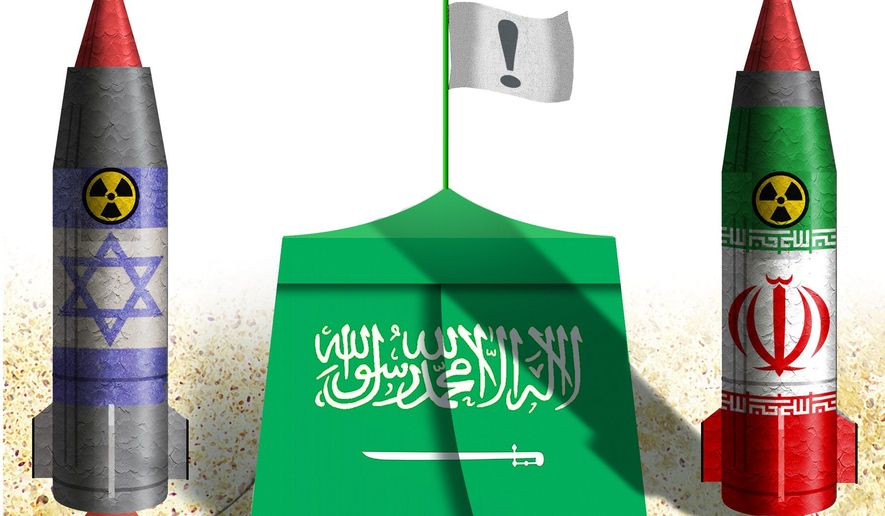ANALYSIS/OPINION:
Saudi Arabia wants to bring more nuclear power to the Middle East.
In a bid to balance the growing threat of Iran, Saudi Arabia has been negotiating with the United States to build as many as 17 nuclear reactors. Although it claims to want nuclear power for domestic electricity needs only, the Saudis want to nuclearize under the same conditions that we now regret having granted to Iran - conditions that allow them to enrich their own uranium for nuclear weapons.
If the Saudis don’t buy reactors from America, there are other countries standing in line ready to reap the profit. Russia, France or China will undoubtedly be happy to make the sale.
A great deal has been made of the Saudi Kingdom’s moves to modernize under the leadership of the young Crown Prince Mohammed bin Salman, who has been rebranding the kingdom as a country on the path to modernization and openness to the world. His narrative is that Saudi Arabia’s rigid, closed, extreme Islamic culture was a reaction to Iran’s 1979 revolution; that in fact, most Saudis embrace a moderate form of Islam, to which they hope to return.
The Saudi rhetoric of moderation and modernization has been warmly welcomed in the West, although so far they have taken only the tiniest actual steps in that direction. Saudi women have been granted permission to drive. Air India has been allowed to fly through Saudi airspace on its way to Israel. Saudi religion police have reportedly been restrained and corrupt leaders removed.
But Wahhabism still dominates life in Saudi Arabia. Wahhabism and Salafism are the strictest interpretations of Islam, which are exported globally and which inspired al Qaeda and other terrorist groups. The Saudi legal system is based on sharia (Islamic law), and is very far from open to the world. In today’s Saudi Arabia, conversion from Islam to another religion is punishable by death. Churches and synagogue buildings are forbidden in the kingdom. Christians, most of whom are migrant workers from the Philippines, India and Africa, face deportation if they speak about their faith in public.
The overriding consideration of a nuclear Saudi Arabia is this: It is not clear how stable the Saudi regime is. In a region filled with prolonged conflict, failed states and Iranian aggression via terrorist groups, the stability of Saudi Arabia is not guaranteed. It faces opposition from within as well as from without.
In the 1990s, when we had the chance, the U.S. failed to effectively challenge the nuclearization of North Korea. In 2012, we handed nuclear keys to Iran. We can’t afford a third colossal failure. Any nuclear deal with Saudi Arabia needs to proceed very slowly, with caution, and with deep, genuine and verifiable safeguards.




Please read our comment policy before commenting.